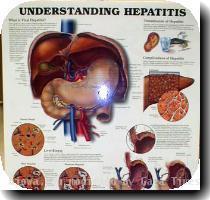South African surgeons report transplanting kidneys between patients with HIV infections
By Mike Stobbe, APWednesday, June 16, 2010
Kidneys transplanted between HIV-infected patients
ATLANTA — South African surgeons have transplanted kidneys between donors and patients who were both infected with the AIDS virus — a medical first that has some U.S. doctors buzzing about whether it could be tried here.
The first four of the transplants, which occurred in 2008, are described in Thursday’s New England Journal of Medicine.
Five more have been done since then at the same Cape Town hospital, Groote Schuur. It’s the only medical center in the world to have done them, said one of the transplant surgeons, Dr. Elmi Muller.
The United States bans transplants from HIV-infected donors out of fear they will spread the AIDS virus to recipients. Some have occurred by accident, however, when a donor’s infection was not detected beforehand.
Muller was in the U.S. last week and discussed the work at a National Institutes of Health meeting.
“We’ve been talking a lot about whether it makes sense to start doing this,” said Dr. Peter Stock, a researcher at the University of California, San Francisco, who attended the meeting.
HIV patients can survive decades with the help of medications. Now, many of them also struggle with kidney disease, which in some cases is a complication of their infection, and need dialysis.
But HIV patients suffer anemia more than other dialysis patients and face additional risks. The waiting list for a donor kidney is currently eight years in the United States. Allowing HIV-infected patients to donate organs might allow some patients with HIV to receive organs much faster, Stock noted.
U.S. doctors already transplant organs between donors and patients with hepatitis C, he added.
The early successes in Cape Town may be difficult to translate to America. Drug-resistant strains of HIV are more common in the United States: Doctors fear that an organ recipient with HIV will become infected with a strain more drug resistant — and dangerous — than the one they already have.
South Africa has an estimated 5.7 million people infected with HIV, more than any other country. But it has less of a problem with drug-resistant HIV, Muller noted. She said dialysis for HIV patients is extremely limited, leaving them in desperate need of a transplant.
“Rather than watch people die, (Muller) decided to use the organs she could,” Stock observed.
In a letter in the journal, Muller and her colleagues tell how they took kidneys from two deceased patients and transplanted them in three men and a woman. Of the nine transplants done so far, eight have done well. A ninth also did well, but died from what appears to be an unrelated condition, Muller said.
Online:
New England Journal: www.nejm.org
Tags: Africa, Atlanta, Cape Town, Diagnosis And Treatment, Diseases And Conditions, Georgia, Health Issues, Infectious Diseases, North America, Organ Donation, Organ Transplants, South Africa, Southern Africa, United States


